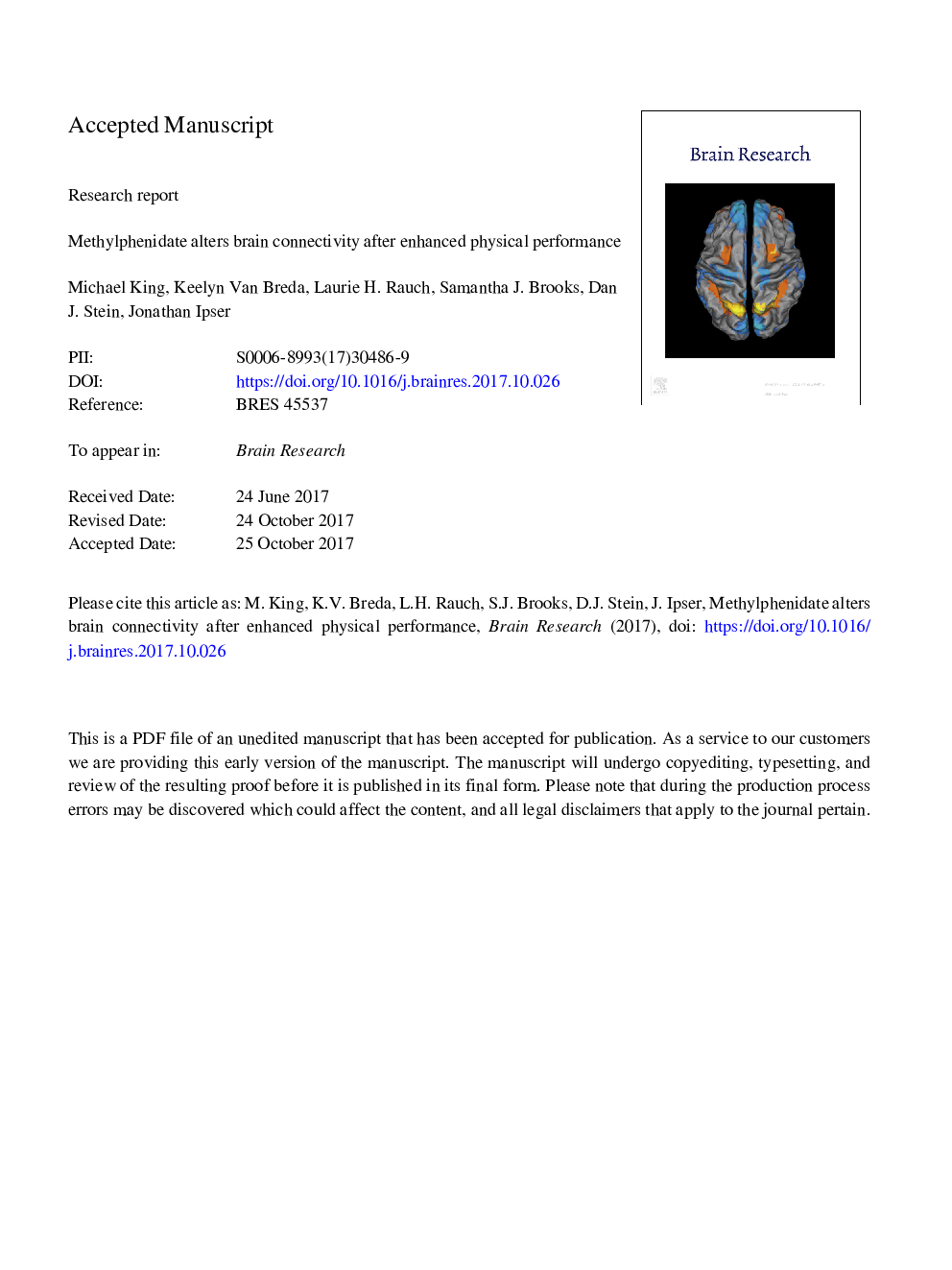| Article ID | Journal | Published Year | Pages | File Type |
|---|---|---|---|---|
| 8839930 | Brain Research | 2018 | 30 Pages |
Abstract
Muscle fatigue is a disturbed homeostatic state characterized by a temporary inability to maintain force output and has lasting effects on the brain in the period immediately after exercise, such as decreased interhemispheric functional connectivity (FC). Stimulants that increase dopamine and norepinephrine neurotransmission can enhance performance during muscle fatiguing exercise (i.e. are ergogenic). We recently demonstrated that methylphenidate (MPH) increased force output and increased FC between the insular (IC) and hand motor cortex during a fatiguing handgrip task. However, whether resting FC is altered in the recovery period after enhanced force is unknown. The objective of these follow-up analyses was to examine the effects of performing a fatiguing handgrip task with MPH on subsequent resting state FC. In a double-blind counter-balanced design, participants ingested placebo or MPH and in a magnetic resonance imaging scanner performed: a six-minute pre-task resting scan, a fatiguing handgrip task during scanning, and then a six-minute post-task resting scan. We investigated task-related force and resting state FC pre- and post-task between: (1) interhemispheric motor cortices (M1) and (2) the right IC and left hand motor area. We found 1) a post-task reduction in M1 interhemispheric FC and that the extent of reduciton was negatively correlated with enhanced mean trial force in MPH conditions. 2) MPH but not placebo increased post-task FC between the right IC and left hand motor area. This study demonstrates that using MPH during a muscle fatiguing task has lasting effects on the brain that are markedly different from drug naïve conditions.
Related Topics
Life Sciences
Neuroscience
Neuroscience (General)
Authors
Michael King, Keelyn van Breda, Laurie H. Rauch, Samantha J. Brooks, Dan J. Stein, Jonathan Ipser,
